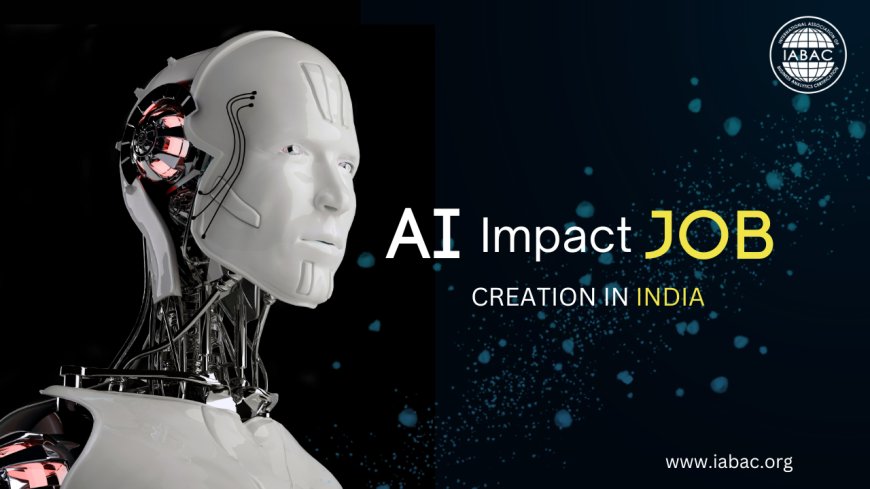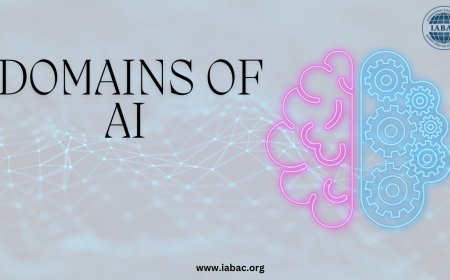AI's Impact on Job Creation in India
Explore how AI is shaping job creation in India, its impact on the workforce, and future implications. Stay informed with our insights.

India, a country known for its undeveloped population and technological environment, finds itself at the crossroads of artificial intelligence (AI) integration and its potential impact on job creation. As industries across sectors embrace AI technologies to enhance efficiency and productivity, questions arise about the consequential effects on employment opportunities for the Indian workforce.
Artificial intelligence, encompassing machine learning, natural language processing, and robotics, can potentially revolutionize job roles across various sectors. AI-driven automation streamlines processes, leading to the creation of new job roles while also altering existing ones. However, concerns linger regarding the displacement of certain job roles as AI systems assume tasks traditionally performed by humans.
AI's Influence on the Indian Job Market
The question of whether AI is squeezing jobs in India or shaping the future is complex and multifaceted. While AI-driven automation may lead to the displacement of certain roles, it also paves the way for the emergence of new job opportunities. Industries such as manufacturing, customer service, and logistics may witness job losses due to automation, particularly affecting low-skilled workers. Conversely, the demand for skilled professionals in fields such as data science, machine learning, and AI development is on the rise, reflecting the evolving job market shaped by AI adoption.
Jobs Potentially Impacted by AI in India
Several job roles are susceptible to being replaced or transformed by AI technologies. Routine, repetitive tasks that can be automated, such as data entry, clerical work, and routine customer service interactions, are at risk of being replaced by AI-driven systems. However, it's essential to recognize that AI's impact extends beyond job displacement, influencing the nature of work and necessitating a shift towards skill sets that complement AI technologies.
the integration of AI into the Indian job market signifies a paradigm shift in employment dynamics. While AI may disrupt certain job roles, it also creates opportunities for innovation, entrepreneurship, and the development of new skills. By proactively addressing the challenges posed by AI adoption through investments in education, skills development, and inclusive growth policies, India can navigate the transition toward a future where AI contributes to sustainable economic growth and societal advancement.
How will AI adoption impact job creation in India?
The impact of AI on job creation in India is a multifaceted issue that requires a nuanced understanding of the interplay between technological advancements, workforce dynamics, and policy frameworks. While AI adoption holds the promise of driving economic growth and innovation, its implications for employment must be carefully managed to ensure inclusive growth and mitigate socioeconomic disparities.
India stands on the threshold of a technological revolution fueled by the rapid advancement of artificial intelligence (AI) technologies. As industries across sectors embrace AI to enhance efficiency and productivity, questions arise about the consequential effects on job creation and employment opportunities for the Indian workforce.
1. Opportunities for AI for Job Creation
AI presents a myriad of opportunities for job creation in India across various sectors.
-
Emergence of New Job Roles: The integration of AI technologies creates a demand for skilled professionals in fields such as data science, machine learning, and AI development.
-
Enhanced Productivity and Efficiency: AI-powered automation streamlines processes, leading to increased productivity and the creation of new job roles in areas such as AI implementation, maintenance, and optimization.
-
Expansion of AI-driven Industries: Industries such as healthcare, finance, manufacturing, and agriculture are poised to benefit from AI adoption, leading to the creation of jobs in AI-driven sectors.
2. Challenges and Concerns
Despite the potential benefits, the widespread adoption of AI poses challenges and concerns for job creation in India.
-
Job Displacement: Automation of routine tasks may lead to job displacement in sectors such as manufacturing, customer service, and logistics, impacting low-skilled workers disproportionately.
-
Skill Mismatch: There exists a gap between the skills demanded by AI-driven industries and the existing workforce, highlighting the need for upskilling and reskilling initiatives to ensure employability.
-
Socioeconomic Disparities: The benefits of AI adoption may not be equitably distributed, exacerbating existing socioeconomic disparities and widening the digital divide.
3. Strategies for Mitigating Job Displacement
To address the challenges posed by AI adoption and mitigate job displacement, several strategies can be implemented.
-
Investment in Education and Training: Government and industry initiatives aimed at upskilling and reskilling the workforce in emerging technologies such as AI are crucial to ensuring a smooth transition to the digital economy.
-
Promotion of Entrepreneurship: Encouraging entrepreneurship and innovation can spur job creation in AI-related startups and small businesses, fostering a culture of innovation and resilience.
-
Social Safety Nets: Robust social safety nets and policies such as universal basic income (UBI) can provide a cushion for workers displaced by AI-driven automation, enabling them to transition to new job roles or pursue education and training opportunities.
the impact of AI on job creation in India is contingent upon strategic investments in education, skills development, and inclusive growth policies. While AI adoption holds the promise of driving economic prosperity and innovation, proactive measures are required to mitigate job displacement and ensure that the benefits of AI are equitably distributed across society. By embracing AI technologies responsibly and fostering a conducive ecosystem for innovation and entrepreneurship, India can harness the transformative potential of AI to create a more inclusive and sustainable future for all.











































